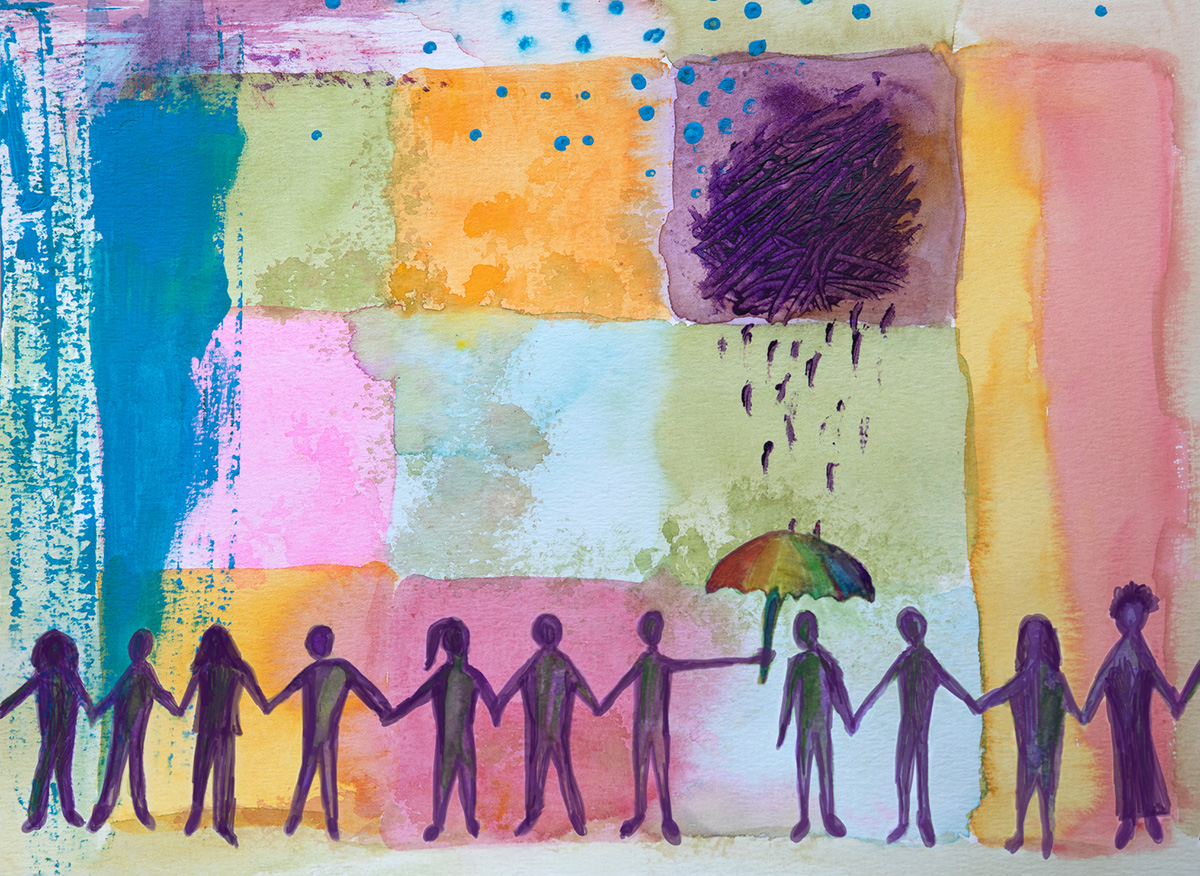Ministers often immerse themselves in the lives of their congregants. They share in the successes, the joys, the faith of those they tend to. But they also experience, secondhand, the sadness, anger and doubt. Lives are messy, and faith leaders are called upon again and again to walk with people during their darkest moments. This can be exhausting.
Psychologists refer to this as compassion fatigue — the personal impact of helping others who are experiencing stress or trauma. Research suggests that ministers score higher than most adults on compassion fatigue.
We were in a unique position over the past few years to see how COVID-19 shaped the experience of compassion fatigue in pastors. We are the assessment team — a psychology professor and two graduate students — for the Companions in Ministry (CiM) program at Marquette University, funded by the Thriving in Ministry national initiative of Lilly Endowment Inc.
CiM provides faith leaders an 18-to-24-month program of self-care, reflection and networking aimed at improving their resilience and well-being. By coincidence, our first round of data collection occurred prior to the onset of the pandemic, so we had a lot of information about pastors’ psychosocial well-being both before and after COVID-19 hit the country. Rather than looking at different groups of faith leaders, we were assessing the same ministers before and again during the pandemic.
The interviews conducted during 2021 clearly reveal the struggles of the ministers in the pandemic. When asked about the impact of COVID-19, they spoke of compassion fatigue in a variety of ways and as being caused by several dramatic changes in their work, such as less downtime leading to exhaustion, new technology needs causing anxiety, the potential spread of the infection contributing to fear, and political divisiveness in the congregation about mask use and social distancing causing consternation.
Here’s a select sample of interview excerpts capturing this:
“It just wore out my soul. And I’m still in that place where I’m just tired.”
“Impact, of course, was uncertainty. I was scared lots. I could be unwillingly guilty of spreading infection without acknowledging it.”
“It’s been really taxing. I don’t necessarily feel like I have a ton of either denominational support or congregational support. Lots of people are depending on me, you know, to give them encouragement, where I’m also hyperaware of the ways, you know, I need some encouragement as well.”
Given what we were hearing in these interviews when the congregational leaders were asked about the impact of the pandemic, we expected the scores on our compassion fatigue measure to show an increase, that the pastors would score significantly higher during the pandemic than they did prior to its onset. Yet the scores did not reflect such a rise. Why?
We found one possible explanation for this in both the quantitative analyses and the interviews themselves. The statistical procedures we applied to the surveys the pastors completed revealed that one of the strongest antidotes to compassion fatigue was the presence/power of God they felt in their ministry and in their life outside of their work.
The survey scores on these two phenomena — felt presence/power of God within ministry and outside of ministry — were both strongly associated with compassion fatigue such that the more God’s presence was felt, the less compassion fatigue was experienced.
The resilience and positive energy one’s faith provided was also evident in the interviews:
“The second week of April of 2020, I felt like I was going to have a nervous breakdown because I was preaching to a TV screen. Then God spoke to me, and that’s when I had to go in a different way. So we’re just walking by faith and learning God in a different way.”
“Every day I do believe I’m open to what the Spirit can say to me. I wouldn’t be experiencing the positive things happening for us and for me if I didn’t have an open spirit to hear.”
“I’m up for the challenge because of my faith in what I believe. I’m going to have to learn a lot of things and do a lot of things differently and help others to help others. But we will come through it.”
Results indicate that savoring the presence of God was one remedy for compassion fatigue. But other possible countermeasures emerged from the interview data. For instance, many ministers spoke of the unanticipated benefits to wellness caused by engaging in more outside exercise than usual.
As indoor activities became unhealthy or unavailable, outdoor pursuits like longer dog walks or taking up bicycling served as energy boosters. A third clear pattern was that compassion fatigue was reduced through maintaining connections to other people. This was spoken about in a variety of ways, but the common factor was human interaction.
What we all began to call “social distancing” should have more properly been referred to as “physical distancing,” for social interconnectedness became vital.
The pastors in the CiM group clearly experienced compassion fatigue and spoke of the several ways that the pandemic made their work exhausting. They also talked of the personal benefits during COVID-19 of physical activity and engagement with others. Both interview and quantitative statistical data demonstrate that compassion fatigue was lower for those who felt the presence/power of God in their ministries and in their everyday lives.





















